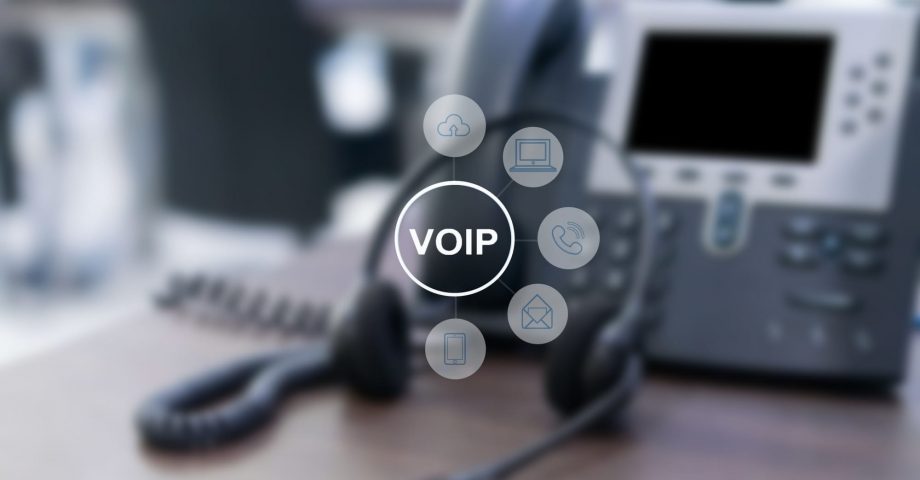10 Reliable Facts about VoIP Communication
In this modern age, how many of us still really use a landline? Even in our places of work, the internet has seemingly taken over – and with good reason! VoIP, in particular, has proven to be a great way of dealing with business calls on a daily basis. But what is VoIP? Here are some fun facts about VoIP communication you’ll want to keep in mind if you’re thinking about switching over.
1. What is VoIP?
VoIP is shortened from Voice over Internet Protocol. Simply put, it is technology that provides voice communication over data connection rather than traditional telephone lines.
2. It’s more than just voice-based!
VoIP is an incredible technology that allows for the transmission of voice, video, and other multimedia content over internet protocol. This means that it is a versatile communication solution, perfect for businesses!
3. How does VoIP work?
Essentially, VoIP converts analog audio signals into digital data packets that are transmitted over the internet, or private IP networks. This means that it works much in the same way as general FaceTime or Zoom calls!
4. How expensive is VoIP?
You’d think that with such incredible technology and such a versatile system, businesses would have to pay a fortune for VoIP! However, VoIP offers serious cost savings compared to traditional phone systems, which is yet another reason why modern businesses love it! You don’t have to pay line rental, for example, and maintenance fees are much lower compared to running traditional telephony.
5. Why are VoIP systems so affordable?
Given all that you get with VoIP systems, it can be a little confusing to hear how cost-effective it is compared to traditional phone lines! However, VoIP eliminates the need for separate voice and data networks, reducing infrastructure and maintenance costs. Therefore, it is much more cost-effective to run.
6. It’s super-flexible.
One of the most attractive things about VoIP systems is that they provide flexibility and scalability. VoIP essentially allows businesses to easily add or remove phone lines as needed without requiring physical infrastructure changes, which traditional phone lines would typically require.
7. Bring on the features!
As you can imagine, data-based VoIP communications also offer a wide range of features and extra touches! These include call forwarding, call waiting, voicemail, conference calling, and caller ID – all of which you can tailor to your needs.
8. Fancy working on the go?
One of the best things about VoIP especially for small businesses that may not be able to afford to have someone always present in the office, is that it supports mobility. Crucially, it allows users to make and receive calls from any location with a stable internet connection!
9. It’ll work perfectly with your existing systems.
VoIP may seem like it takes care of pretty much everything, but it does also scale well with other communication tools and applications. These include email, instant messaging, and customer relationship management (CRM) systems. That means you barely have to change a thing about your existing setup to welcome VoIP as standard.
10. The slight downside to VoIP…
VoIP may only work well in certain areas. Quality of Service (QoS) is essential for VoIP to ensure clear and reliable voice communication. Adequate bandwidth, network prioritization, and proper configuration are critical for optimal performance, so businesses in remote and poorly serviced areas may not do as well with VoIP systems. That said, if you choose a reputable VoIP provider, they’ll check your coverage before you pay a penny.

FAQs about VoIP Communication
Is WhatsApp a VoIP call?
Technically speaking, since WhatsApp uses an internet connection to make voice and video calls, as well as to send text and voice messages, then, yes, it can be considered a VoIP service.
Can I use my cell phone as a VoIP phone?
Yes, you can use your cell or smartphone as a VoIP phone. As long as your phone can easily connect to the internet, then it is a great device to use for your work, business, and personal VoIP calls!
Are VoIP calls free?
Most VoIP systems allow you to make free or very low-cost phone calls over the internet. You’ll typically pay a regular fee each month to use the service.
Further reading:
https://factcity.com/tag/Telecoms
https://planet.uk/voip-phone-systems/
https://www.linkedin.com/pulse/history-voip-internet-telephones-ameeth-dubey/
Do you know any fun facts about VoIP communication? Share them in the comments below!
This page was last modified on February 12, 2024. Suggest an edit











